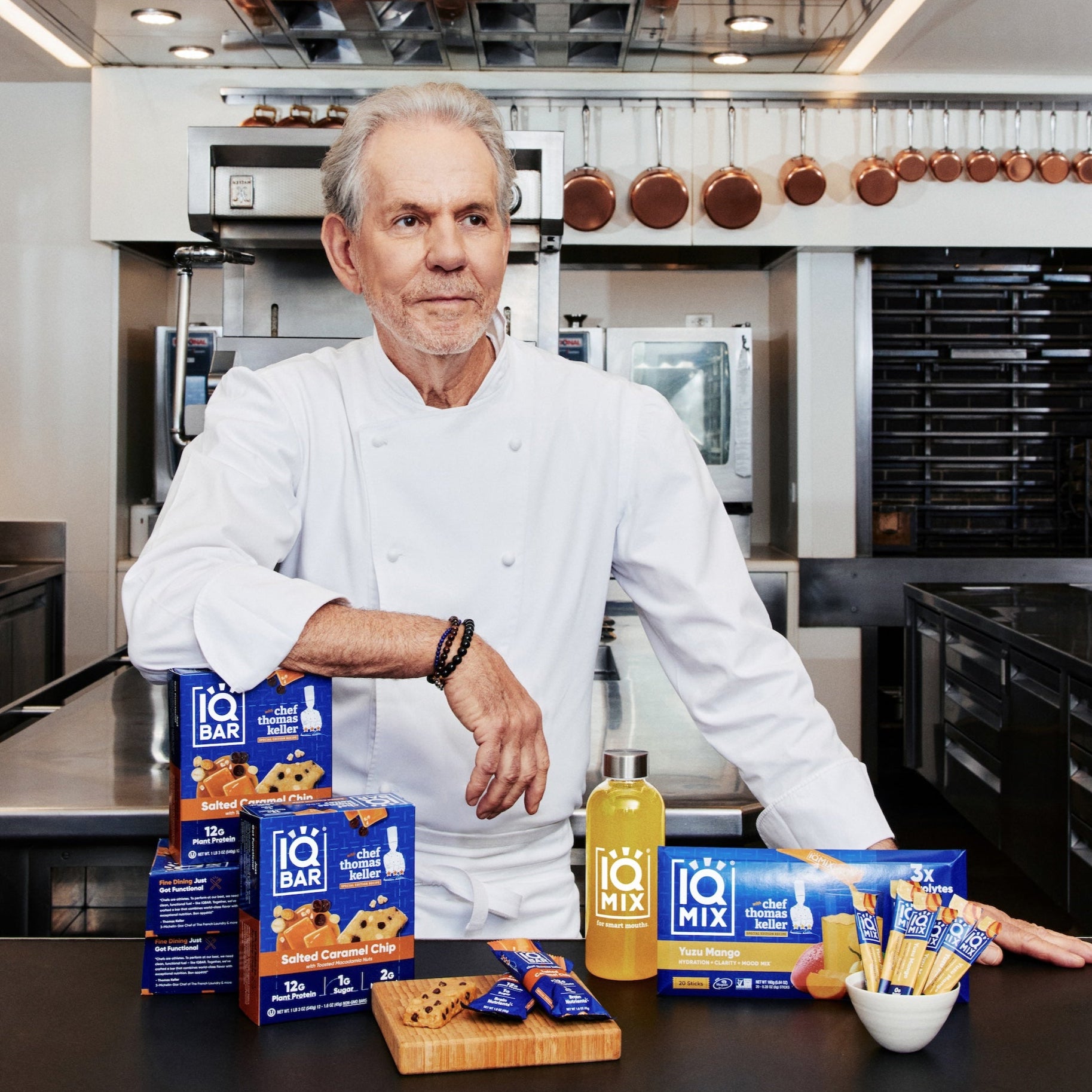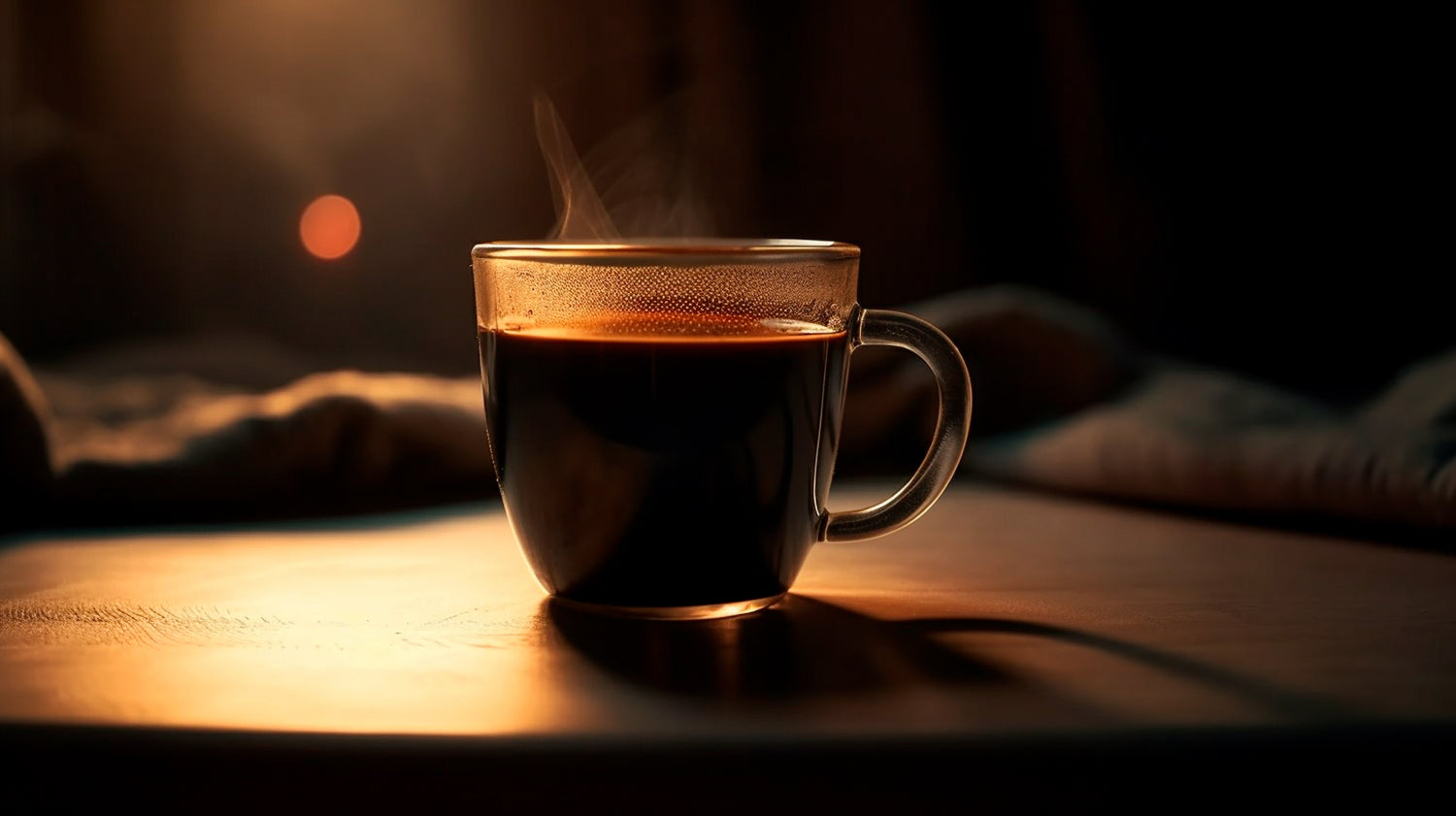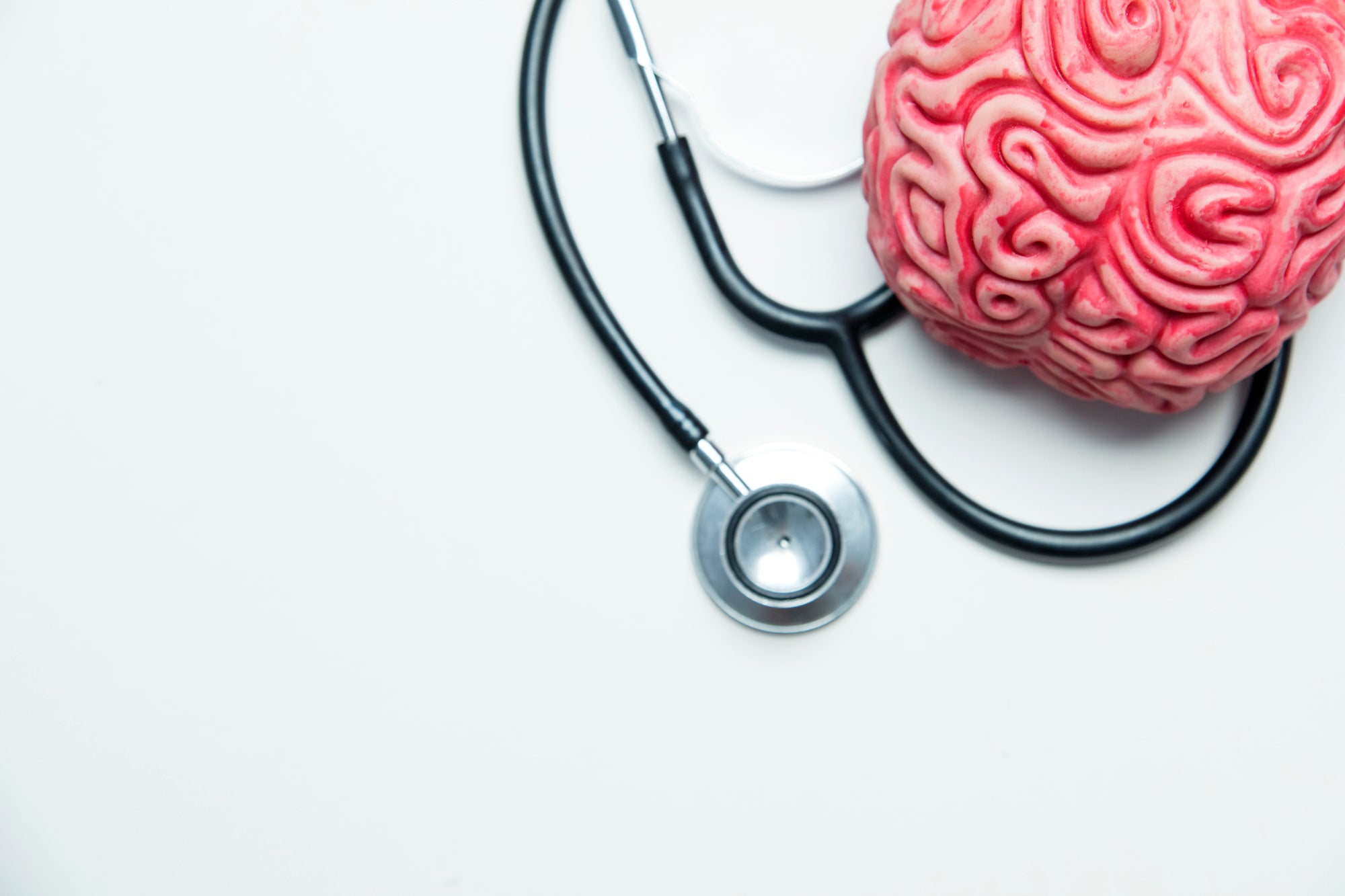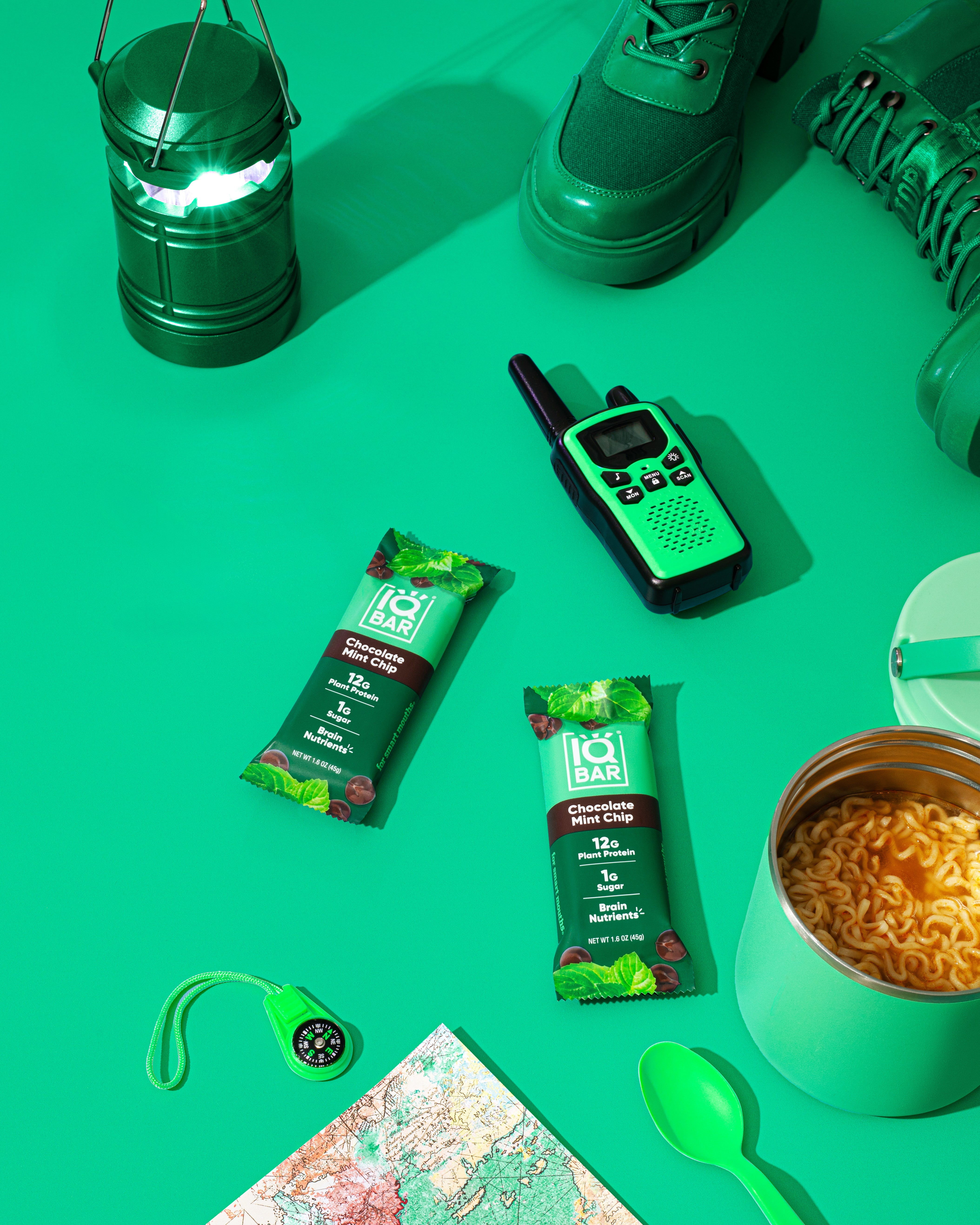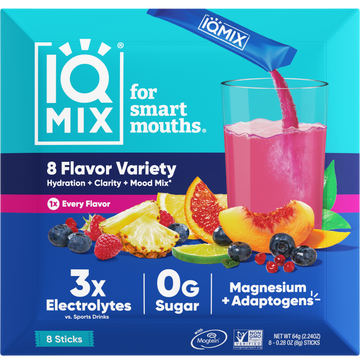An impressive 75 percent of Americans consume coffee daily, with nearly half of this group enjoying three to five cups a day. Coffee’s allure is thanks to a blend of elements—the comforting ritual, the rich taste, the enticing aroma, and, of course, the energizing kick.
At the heart of coffee’s invigorating effect is caffeine, a naturally occurring stimulant found in coffee beans. But how much caffeine is actually in coffee? It’s a simple question, but the answer is a bit more complex, influenced by factors ranging from the type of coffee bean to the brewing method.
We’ll get into the nitty-gritty shortly, but first, let’s cover some caffeine fundamentals.
What Is Caffeine?
Caffeine is a natural compound that acts as a central nervous system stimulant. Coffee is the biggest dietary source of caffeine, but it’s also found in tea leaves, cacao pods, and various other plants.
It works by blocking the action of adenosine—a neurotransmitter that promotes sleep and relaxation. When caffeine inhibits adenosine, the result is a decrease in drowsiness and an increase in alertness and cognitive function. This effect makes caffeine a widely sought-after ingredient for those needing an energy boost.
Beyond its stimulating properties, caffeine has also been studied for its potential health benefits. Research has linked moderate caffeine consumption to various positive outcomes, including enhanced athletic performance, mood support, and even a reduced risk of certain diseases like Parkinson’s, Alzheimer’s, and cardiovascular disease.[*][*][*][*][*]
What Factors Affect Caffeine Content in Coffee?
An average 8-ounce cup of coffee contains about 95 mg of caffeine, but the amount can vary drastically, from essentially none to 500mg. What accounts for the differences? Here are the top factors that contribute to the final amount of caffeine you consume in your cup.
- Type of Coffee Beans: The world of coffee beans is diverse, with each variety boasting its own unique caffeine content. For instance, Robusta beans generally have higher caffeine levels than Arabica beans. This variation in caffeine content among different bean types directly impacts the strength of your brew.
- Roasting Process: Contrary to popular belief, the roast level of coffee beans affects their caffeine concentration. Lighter roasts tend to retain more caffeine than their darker counterparts. However, darker roasts, known for their robust flavor, often give a perception of stronger coffee, even with slightly lower caffeine levels.
- Type of Coffee Brew: The way coffee is brewed plays a significant role in determining its caffeine content. For example, a shot of espresso may seem more concentrated, but due to its small serving size, it could contain less caffeine than a standard cup of drip coffee. Similarly, instant coffee and decaf coffee each have distinct caffeine amounts, with decaf undergoing a process to remove most of the caffeine.
- Serving Size: The phrase “one cup of coffee” is subjective and varies widely in volume, ranging from a small 30 ml (1 oz) espresso shot to a large 700 ml (24 oz) travel mug. Naturally, the larger the serving size, the more caffeine it is likely to contain, contributing to the wide range in total caffeine content.
Caffeine Content in Various Types of Coffee
All factors considered, the caffeine content in your coffee largely hinges on the type of coffee you’re drinking. Here’s a look at the caffeine content in different coffee types.
Brewed Coffee
Brewed coffee is prepared by pouring hot water over ground coffee beans in a filter. A typical 8-ounce cup of brewed coffee has about 70–140 mg of caffeine, averaging around 95 mg.[*]
Espresso
Espresso is made by forcing a small amount of hot water or steam through finely-ground coffee beans. It’s more concentrated in caffeine by volume compared to regular coffee. However, due to its smaller serving size, a single shot of espresso (about 30–50 ml or 1–1.75 oz) contains approximately 64 mg of caffeine.[*]
Espresso-Based Drinks
Popular varieties like lattes, cappuccinos, macchiatos, and Americanos are made with espresso shots mixed with milk. Since milk doesn’t add caffeine, these drinks have the same caffeine amount as plain espresso. A single (small) serving averages 63 mg of caffeine, and a double (large) has around 125 mg.
Decaf Coffee
Despite its name, decaffeinated coffee isn’t completely devoid of caffeine. It typically has 0–7 mg per cup, averaging 3 mg.[*] However, depending on the coffee type, decaffeination method, and cup size, some decaf coffees can have higher caffeine levels.
Instant Coffee
Instant coffee is made from freeze-dried or spray-dried brewed coffee. To prepare instant coffee, you simply dissolve a few teaspoons of dry coffee in hot water. No coffee maker required!
While instant coffee generally has less caffeine, with a cup containing roughly 30–90 mg, some specialty instant coffees have more. IQJOE, for instance, offers 200 mg of natural caffeine per 8-gram packet.
How Much Caffeine Is Safe to Consume?
Too much of anything is bad for you (even water), so what’s the sweet spot for caffeine intake? It’s likely more than you think!
For healthy adults, the FDA has cited 400 milligrams of caffeine daily as an amount that’s generally well tolerated without negative or dangerous side effects.[*] That’s roughly the amount of caffeine in four 8-ounce cups of coffee or two sticks of IQJOE instant coffee.
Keep in mind, however, that personal tolerance to caffeine can differ greatly from person to person. Factors such as age, existing medical conditions, and natural sensitivity can influence how caffeine affects you.
Why Choose IQJOE Instant Coffee?
IQJOE instant coffee distinguishes itself by being more than just a caffeine fix. It’s a thoughtfully crafted blend designed to enhance cognitive performance, mood, and energy without the common pitfalls of regular coffee. Let’s explore the three key nutrients that make IQJOE stand out:
- Magtein (750mg Magtein® - Mg L-Threonate): This is not just any magnesium. Magtein® is a clinically studied form of magnesium, specifically Mg L-threonate, known for its beneficial effects on cognition and mood. Unlike standard magnesium supplements, Magtein® is designed to cross the blood-brain barrier, directly impacting brain function to enhance memory and cognitive ability while also playing a role in mood regulation.
- Lion’s Mane (250mg Lion’s Mane - 8X-Concentrated): Lion’s mane, a revered medicinal mushroom, is incorporated in a highly concentrated form. It’s well-known for its neuroprotective properties and ability to stimulate brain cell growth.[*] This super-concentrated 8X extract of lion’s mane aids in enhancing cognitive functions, including concentration, focus, and memory.[*]
- Natural Caffeine (200mg): The caffeine in IQJOE is derived from natural sources and is carefully measured at 200mg to provide a robust flavor and sustained, crash-free energy.
IQJOE offers a unique blend that not only invigorates you, but also supports the health of your body and mind. Bonus? The adaptogenic properties of the lion’s mane and the soothing properties of the magnesium may reduce or eliminate negative side effects of caffeine like increased heart rate and jitters.
Whether you’re starting your day or needing a midday boost, IQJOE offers an innovative, health-conscious way to enjoy your daily coffee ritual.
Written by Katie Koschalk, a health and wellness writer, certified holistic nutritionist, and certified personal trainer based in California.
